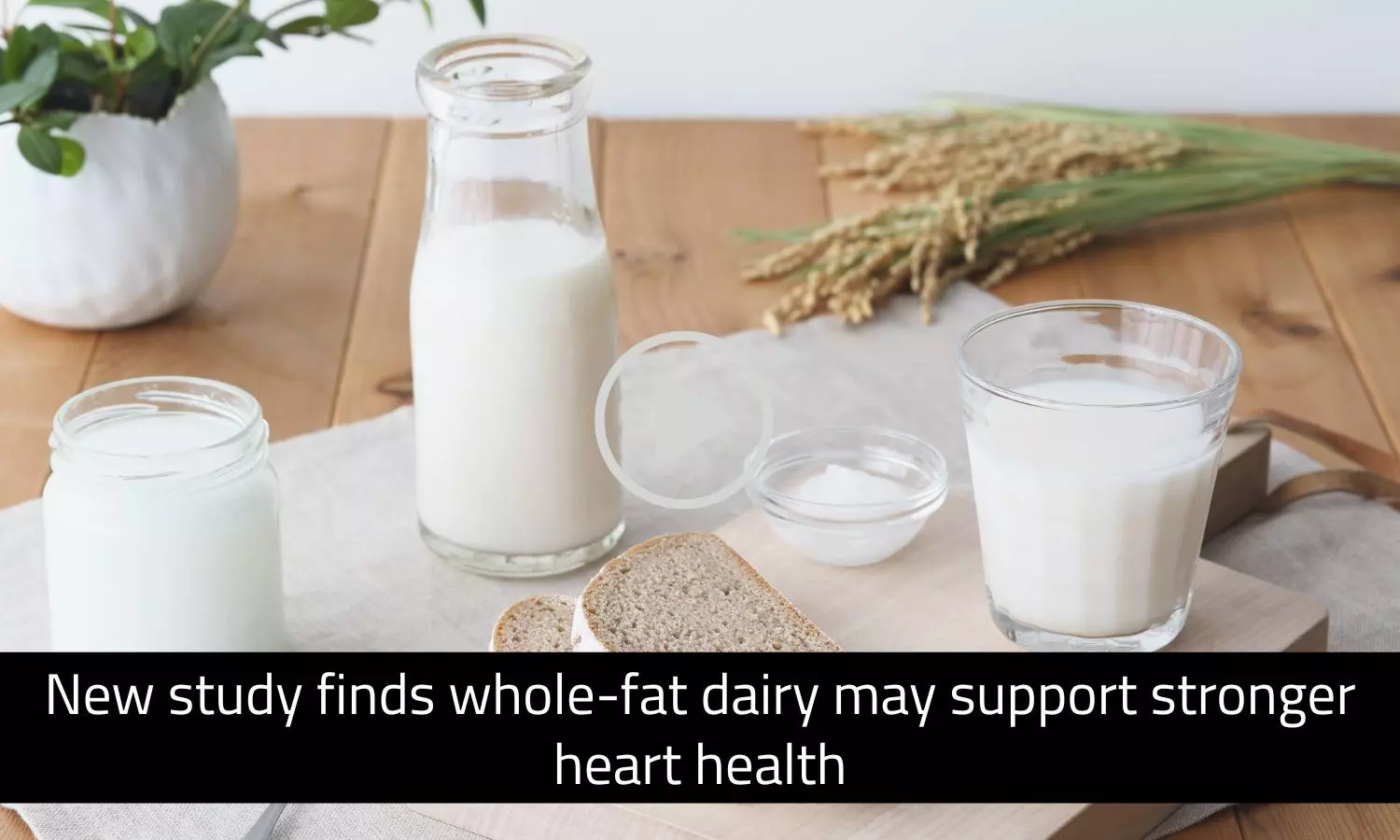Can Whole-Fat Dairy Reduce Risk of Heart Disease?
- byDoctor News Daily Team
- 06 November, 2025
- 0 Comments
- 0 Mins

Scientists have unveiled new insights challenging traditional beliefs about dairy fats and heart health. A recent landmark study published in The Journal of Nutrition tracked over 3,000 young adults for 25 years and found that whole-fat dairy consumption in early adulthood may reduce the risk of coronary artery calcification (CAC), an established predictor of coronary artery disease. The debate over dairy's impact on cardiovascular health has persisted for decades. Conventional guidelines have promoted low- or non-fat dairy to minimize saturated fat intake, which was thought to elevate heart disease risk. However, dairy products provide vital nutrients including calcium, potassium, and vitamin D, complicating the narrative. This study sheds fresh light by focusing on younger populations and examining long-term cardiovascular outcomes. Researchers involved 3,110 participants aged 18 to 30 enrolled in the Coronary Artery Risk Development in Young Adults (CARDIA) study. Dietary intake was meticulously documented at baseline and after seven years. coronary artery calcification was assessed via imaging at 15, 20, and 25 years. To account for confounders, models adjusted for demographics, lifestyle factors, and body mass index (BMI). Among 904 participants who developed coronary artery calcification, those consuming the highest quartile of whole-fat dairy exhibited a 24% lower risk of developing calcification compared to those in the lowest quartile (hazard ratio 0.76; 95% CI: 0.61–0.96). However, this protective association diminished when BMI was included, indicating body weight partly explains the effect. Intake of total or low-fat dairy was not significantly associated with coronary artery calcification risk. These results suggest whole-fat dairy does not elevate— and might even reduce—subclinical atherosclerosis risk, challenging dietary recommendations favoring low-fat dairy for heart disease prevention. The interaction of dairy’s fatty acids and other components within the food matrix may underlie protective effects. Lead researchers advocate for revisiting guidelines to emphasize overall dietary quality rather than single nutrient avoidance. Future studies encompassing diverse populations will be crucial to solidify these findings and guide nutritional advice to promote lifelong cardiovascular health. REFERENCE: Cannon EJ et al. Dairy Intake and Coronary Artery Calcification: The Coronary Artery Risk Development in Young Adults (CARDIA) Prospective Cohort Study; The Journal of Nutrition. 2025;DOI:10.1016/j.tjnut.2025.09.029.
Disclaimer: This website is designed for healthcare professionals and serves solely for informational purposes.
The content provided should not be interpreted as medical advice, diagnosis, treatment recommendations, prescriptions, or endorsements of specific medical practices. It is not a replacement for professional medical consultation or the expertise of a licensed healthcare provider.
Given the ever-evolving nature of medical science, we strive to keep our information accurate and up to date. However, we do not guarantee the completeness or accuracy of the content.
If you come across any inconsistencies, please reach out to us at
admin@doctornewsdaily.com.
We do not support or endorse medical opinions, treatments, or recommendations that contradict the advice of qualified healthcare professionals.
By using this website, you agree to our
Terms of Use,
Privacy Policy, and
Advertisement Policy.
For further details, please review our
Full Disclaimer.
Recent News
Silent Heart Attacks Pose Long-Term Health Risks f...
- 06 November, 2025
Long-Term Melatonin Use Associated to Increased He...
- 06 November, 2025
Can Whole-Fat Dairy Reduce Risk of Heart Disease?
- 06 November, 2025
BFUHS notifies on Round 6 BSc Nursing admissions,...
- 06 November, 2025
Daily Newsletter
Get all the top stories from Blogs to keep track.


0 Comments
Post a comment
No comments yet. Be the first to comment!